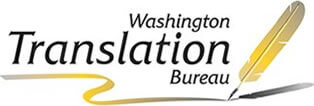
CERTIFICATION, NOTARY & APOSTILLE
WTB is a full-service translation agency. If you have questions about Apostilles, Authentications or Notary Acts, please let us know.
Translated documents usually require a Certification by the Translator. Most courts and other official bodies will require such certification, which is simply a statement by the Translator (or Translation Agency) that the Translator is credentialed and/or has the education, training and experience necessary to render a true and correct translation from the source document.
In the United States surprisingly, there is no national or international “certifying authority.” Instead, there are several different organizations that will “certify” that a person is a credentialed Translator or Interpreter. Some examples are the Departments of Health in each state that can certify a person is qualified to perform medical translating or interpreting; the court system in each state that certifies court interpreters; or a person’s college diploma that indicates he or she graduated with a degree in linguistics in a specific language. Certain industry groups such as the American Translator’s Association (ATA) will also “certify” a translator in a few of the more commonly used languages.
In all these cases, the organization administers some type of test to ensure competency before a Certification is awarded.
Here at Washington Translation Bureau, we ask for copies of these certifications and/or diplomas from each of our employees or subcontractors before we allow them to work on our clients’ projects.
Once a Certification is affixed to a translation, a Notary Public notarizes the certifier’s signature on the document. This ensures that the identity of the person signing the certification has been authenticated. During all our years of business, a WTB certification has never been challenged by any court, government agency, or other body.
An Apostille is a document provided under The Hague Convention of 1961, for authenticating documents to be filed in countries that are members of the Hague Convention. If your document is to be presented in one of those countries, WTB will help you secure an Apostille.
For non Hague Convention countries, WTB will send your documents to the U.S. State Department for Authentication, which serves the same function as an Apostille.
In many countries, a “Notary” is also a lawyer and therefore may notarize a document as being legal. In the U.S., however, a notary public is simply charged with verifying the identification of the signer of a document, not that the document itself is a legal instrument. Notaries in the U.S. can also attest that a document is a “true and correct” copy of an original, as well as attest that a person has taken an oath, among other similar duties. Before you request that your document be notarized, be sure to understand exactly what that notarization means for you and the document!
Contact us for all your translation and interpretation needs for the languages of the former Soviet Republics and many European languages, including: Amharic, Arabic, Armenian, Azerbaijani, Belarusian, Bulgarian, Chechen, Dutch, English, Estonian, Flemish, French, Georgian, German, Hebrew, Hungarian, Italian, Kazakh, Kyrgyz, Latin, Latvian, Lithuanian, Mongolian, Polish, Romani (all dialects), Romanian / Moldovan, Russian, Spanish, Tajik, Turkmen, Turkish, Uzbek, Ukrainian, and Vietnamese. If you don’t see your language, please contact us for assistance.
